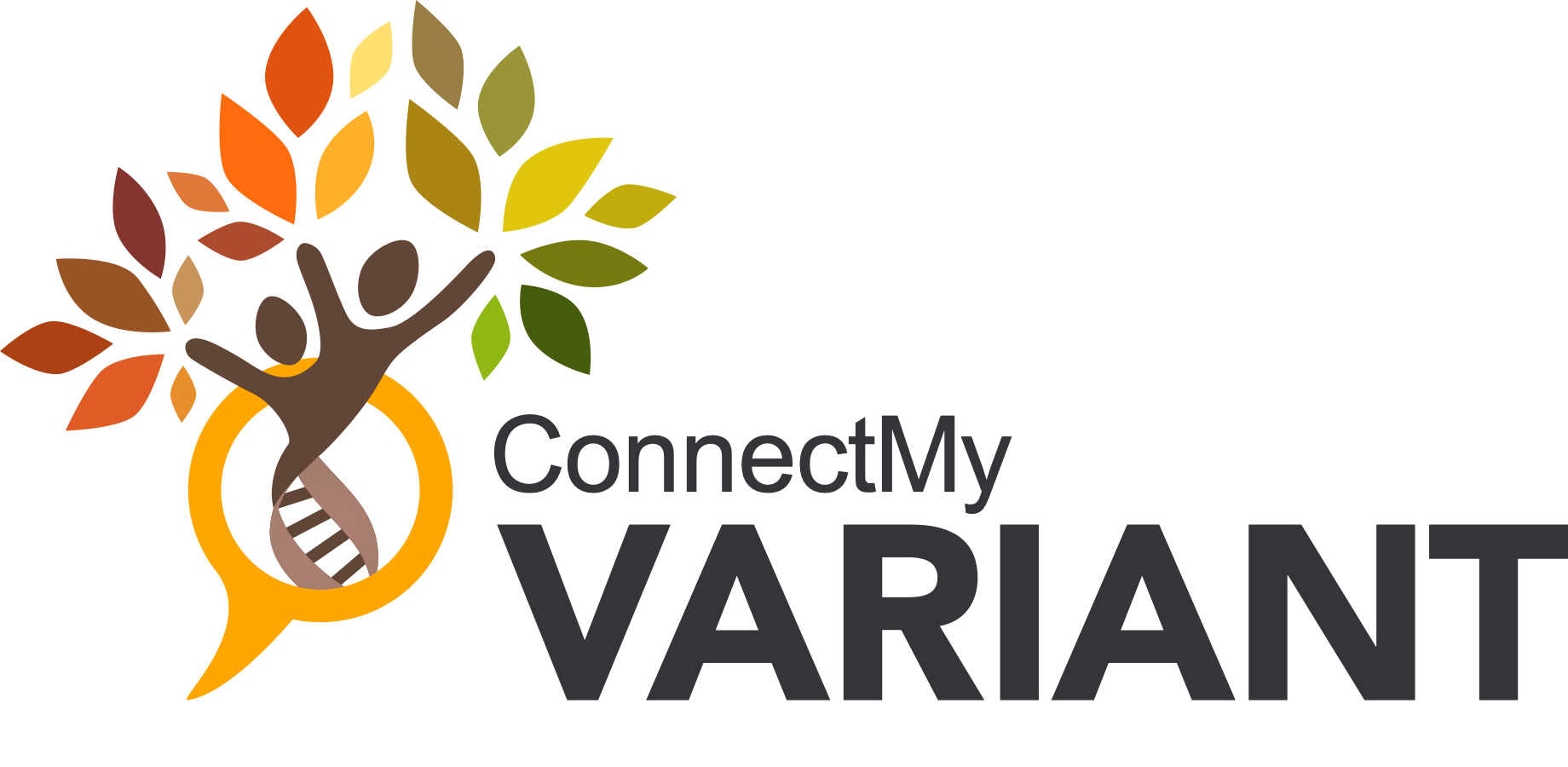| Get Support Donate Follow Us Get Involved |
Fall 2020 HEREDITARY CANCER RESEARCH UPDATES Dear Voornaam, You are receiving this email because you signed up for FORCE’s Research Interest List. We will send you information quarterly on cancer prevention, detection, treatment and quality of life research studies enrolling people with hereditary cancer or an inherited mutation linked to cancer risk. We will also provide updates on new research findings.
Research highlight: feedback on graphic novel for men at risk for hereditary cancer  A researcher from the University of South Florida is seeking men to participate in a 60-minute, one-on-one, online interview to provide feedback on messages created to assist men in communicating about their hereditary cancer risk. Interview participants will also complete a brief five-minute demographic survey. Participants must be males 18 years or older, have tested positive for either BRCA1/2 or have a family history of carrying a genetic variant, have not been diagnosed with hereditary cancer, and select English as their primary language. Participants will be provided with a $30 gift card. If you are interested in this research opportunity, please contact the Study Coordinator, Ms. Lexi Ingle at aingle@usf.edu. A researcher from the University of South Florida is seeking men to participate in a 60-minute, one-on-one, online interview to provide feedback on messages created to assist men in communicating about their hereditary cancer risk. Interview participants will also complete a brief five-minute demographic survey. Participants must be males 18 years or older, have tested positive for either BRCA1/2 or have a family history of carrying a genetic variant, have not been diagnosed with hereditary cancer, and select English as their primary language. Participants will be provided with a $30 gift card. If you are interested in this research opportunity, please contact the Study Coordinator, Ms. Lexi Ingle at aingle@usf.edu.
|
Read our guest blog: Including Men in Breast Cancer Trials (Finally!)  Almost 25 years ago, Bob Riter was diagnosed with breast cancer. At the time, there was no good data on men with breast cancer, because men were excluded from breast cancer trials. The FDA now recommends that research trials for breast cancer drugs include men with breast cancer. Bob's blog explores this important move forward to benefit an underserved group in the breast cancer community. Almost 25 years ago, Bob Riter was diagnosed with breast cancer. At the time, there was no good data on men with breast cancer, because men were excluded from breast cancer trials. The FDA now recommends that research trials for breast cancer drugs include men with breast cancer. Bob's blog explores this important move forward to benefit an underserved group in the breast cancer community.
Read Bob's blog
|
Behind the Headlines: Among women with breast cancer, who should have genetic testing for an inherited mutation?  Which breast cancer patients should consider genetic testing? This FORCE XRAY review looks at which women with breast cancer should have genetic testing for inherited mutations and which guidelines best identify them. #helpnothype Which breast cancer patients should consider genetic testing? This FORCE XRAY review looks at which women with breast cancer should have genetic testing for inherited mutations and which guidelines best identify them. #helpnothype
Read our XRAY review
|
Behind the Headlines: Does insulin resistance affect breast cancer survival of Black women?  Insulin resistance might be one of the reasons that Black women are more likely than White women to die from breast cancer. Read our XRAY-Behind the Breast Cancer Headlines to find out more. #helpnothype Insulin resistance might be one of the reasons that Black women are more likely than White women to die from breast cancer. Read our XRAY-Behind the Breast Cancer Headlines to find out more. #helpnothype
Read our XRAY review
|
Find and enroll in hereditary cancer studies!
Visit FORCE's Research Study Search Tool and Featured Research Page to find and participate in research studies enrolling patients, like you.
|
|
Living with metastatic castration-resistant prostate cancer (mCRPC)? The TalaPro-2 research study is investigating a potential treatment for men with mCRPC who have DNA damage repair (DDR) deficiency. More information is available about eligibility for participation on the TALAPRO-2 study website.
Learn more
|
Help researchers discover how to prevent and treat folate deficiency in patients taking Olaparib  If you have been diagnosed with ovarian or breast cancer and have been prescribed the drug olaparib by your oncologist, please consider taking part in this important research study being conducted at Rush University Medical Center. If you have been diagnosed with ovarian or breast cancer and have been prescribed the drug olaparib by your oncologist, please consider taking part in this important research study being conducted at Rush University Medical Center.
Learn more
|
Denosumab and mammographic density in premenopausal women with dense breasts  This study is looking at the effect of denosumab on breast density of premenopausal women who have dense breasts. Denosumab is an FDA-approved medication for osteoporosis and to prevent fractures in cancer patients with bone metastases. This study could help identify new ways to prevent breast cancer in younger women. This study is looking at the effect of denosumab on breast density of premenopausal women who have dense breasts. Denosumab is an FDA-approved medication for osteoporosis and to prevent fractures in cancer patients with bone metastases. This study could help identify new ways to prevent breast cancer in younger women.
Learn about the study
|
A study to evaluate rucaparib in patients with solid tumors and with deleterious mutations in HRR genes (LODESTAR)  The LODESTAR study is evaluating the response of the PARP inhibitor rucaparib in people with advanced solid tumors (including breast, ovarian, pancreatic, prostate and other cancers) who have an inherited or acquired mutation in any of the following genes: BRCA1, BRCA2, PALB2, RAD51C, RAD51D, BARD1, BRIP1, FANCA, NBN, RAD51 or RAD51B. The LODESTAR study is evaluating the response of the PARP inhibitor rucaparib in people with advanced solid tumors (including breast, ovarian, pancreatic, prostate and other cancers) who have an inherited or acquired mutation in any of the following genes: BRCA1, BRCA2, PALB2, RAD51C, RAD51D, BARD1, BRIP1, FANCA, NBN, RAD51 or RAD51B.
Learn more about LODESTAR
|
Study for people with unexpected genetic results  Did you receive an unexpected genetic test result related to cancer risk? A new study is recruiting people who had genetic testing done for some other reason and received results related to their cancer risks. The goal of this study is to learn what people think about, and how they use results like this. Did you receive an unexpected genetic test result related to cancer risk? A new study is recruiting people who had genetic testing done for some other reason and received results related to their cancer risks. The goal of this study is to learn what people think about, and how they use results like this.
Learn more about the study
|
Connect My Variant  University of Washington researchers are studying ways to help people with genetic disease risk find and talk to family members that have the same genetic mutations. In this study, researchers will help families connect with each other, talk about genetics, and encourage other relative to get genetic testing. The study team hopes to act as partners to help you find and connect with your relatives. With your help we want to make it easier for people like you to find where familial variants came from and prevent disease in everyone with the same risk variant. University of Washington researchers are studying ways to help people with genetic disease risk find and talk to family members that have the same genetic mutations. In this study, researchers will help families connect with each other, talk about genetics, and encourage other relative to get genetic testing. The study team hopes to act as partners to help you find and connect with your relatives. With your help we want to make it easier for people like you to find where familial variants came from and prevent disease in everyone with the same risk variant.
Learn more about the study
|
ELLIE's Project  Do you have a genetic mutation increasing your risk of cancer? Help inform us how future research on lifestyle habits can better serve YOU! Take a 20-minutes survey to learn about nutrition and exercise in relationship to hereditary cancer mutations. Do you have a genetic mutation increasing your risk of cancer? Help inform us how future research on lifestyle habits can better serve YOU! Take a 20-minutes survey to learn about nutrition and exercise in relationship to hereditary cancer mutations.
Take the survey
|
IMMray™ PanCan-d Test for Early Detection of Pancreatic Cancer in High-risk Groups  The Study of IMMray™ PanCan-d Test for Early Detection of Pancreatic Cancer in High-risk Groups is enrolling people who do not have pancreatic cancer, but have a higher risk of developing the disease. The Study of IMMray™ PanCan-d Test for Early Detection of Pancreatic Cancer in High-risk Groups is enrolling people who do not have pancreatic cancer, but have a higher risk of developing the disease.
Learn more
|
Study of safety and effectiveness of Motiva® breast implants  The only way to continue to advance the safety and performance of breast implants is through research. The Motiva Implants® US clinical study is recruiting now for breast reconstruction (both primary and revision) participants. Visit the study link to learn more and participate. The only way to continue to advance the safety and performance of breast implants is through research. The Motiva Implants® US clinical study is recruiting now for breast reconstruction (both primary and revision) participants. Visit the study link to learn more and participate.
Learn more
|
Pilot study of denosumab in BRCA1 or BRCA2 mutation carriers scheduling risk-reducing salpingo-oophorectomy  Are you a BRCA1 or BRCA2 mutation carrier scheduled to have your fallopian tubes and ovaries removed? Learn about an opportunity to enroll in a clinical trial looking at the effects of denosumab on the ovaries, fallopian tubes, and uterus (for women getting a hysterectomy) of women with a BRCA1 or BRCA2 mutation. Denosumab is an FDA-approved injectable medication that is used to treat osteoporosis and to prevent fractures in cancer patients with bone metastases. The eventual goal is to understand if denosumab may be used to reduce the risk of ovarian cancer in women with a BRCA1 or BRCA2 mutation. Are you a BRCA1 or BRCA2 mutation carrier scheduled to have your fallopian tubes and ovaries removed? Learn about an opportunity to enroll in a clinical trial looking at the effects of denosumab on the ovaries, fallopian tubes, and uterus (for women getting a hysterectomy) of women with a BRCA1 or BRCA2 mutation. Denosumab is an FDA-approved injectable medication that is used to treat osteoporosis and to prevent fractures in cancer patients with bone metastases. The eventual goal is to understand if denosumab may be used to reduce the risk of ovarian cancer in women with a BRCA1 or BRCA2 mutation.
Learn more
|
GENERATE Study  The GENERATE (GENetic Education Risk Assessment and Testing) Study offers genetic testing for people who have a close relative with pancreatic cancer that was caused by a mutation in a gene. Knowing about inherited risk helps families protect themselves against pancreatic and other cancers. Visit the study website to learn more and fill out the Eligibility Questionnaire. The GENERATE (GENetic Education Risk Assessment and Testing) Study offers genetic testing for people who have a close relative with pancreatic cancer that was caused by a mutation in a gene. Knowing about inherited risk helps families protect themselves against pancreatic and other cancers. Visit the study website to learn more and fill out the Eligibility Questionnaire.
Learn more about GENERATE
|
Screening for men at high genetic risk for prostate cancer
 The National Institutes of Health has a clinical trial for men at high genetic risk for prostate cancer. This is trial is for men without prostate cancer, ages 30 to 75, who have tested positive for Lynch syndrome (MLH1, MSH2, MSH6, PMS2, EPCAM) or BRCA1, BRCA2, HOXB13, ATM, NBN, TP53, CHEK2, PALB2, RAD51D, BRIP1, FANCA. The trial involves screening MRI of the prostate every two years and biopsy of the prostate if the MRI is abnormal. There is no cost for travel or study-related tests. The National Institutes of Health has a clinical trial for men at high genetic risk for prostate cancer. This is trial is for men without prostate cancer, ages 30 to 75, who have tested positive for Lynch syndrome (MLH1, MSH2, MSH6, PMS2, EPCAM) or BRCA1, BRCA2, HOXB13, ATM, NBN, TP53, CHEK2, PALB2, RAD51D, BRIP1, FANCA. The trial involves screening MRI of the prostate every two years and biopsy of the prostate if the MRI is abnormal. There is no cost for travel or study-related tests.
Learn more about the study
|
|
A study in advanced breast cancer patients with BRCA 1/2 mutations evaluating olaparib alone or in combination with atezolizumab  This is a study for women or men who have been diagnosed with advanced breast cancer with a BRCA 1/2 mutation. The goal of this study is to look at whether giving the DNA damage repair inhibitor (PARP inhibitor) olaparib (Lynparza) in combination with the immunotherapy atezolizumab (Tecentriq) improves outcomes for patients compared to olaparib alone. This is a study for women or men who have been diagnosed with advanced breast cancer with a BRCA 1/2 mutation. The goal of this study is to look at whether giving the DNA damage repair inhibitor (PARP inhibitor) olaparib (Lynparza) in combination with the immunotherapy atezolizumab (Tecentriq) improves outcomes for patients compared to olaparib alone.
Learn more about the study
|
CheckMate-9KD  CheckMate-9KD is a clinical research study for men with metastatic prostate cancer (which means cancer that has spread) that no longer responds to treatments that lower testosterone. Visit the link below to learn more about the study. CheckMate-9KD is a clinical research study for men with metastatic prostate cancer (which means cancer that has spread) that no longer responds to treatments that lower testosterone. Visit the link below to learn more about the study.
Learn more about CheckMate-9K
|
Metastatic Prostate Cancer Project  The Metastatic Prostate Cancer Project is a nationwide genomic research study for men with advanced and/or metastatic prostate cancer. Patients can join online and participate by sharing their medical information and samples. The goal of the project is to generate a comprehensive database that will be shared with the entire research community to accelerate discoveries in prostate cancer. The Metastatic Prostate Cancer Project is a nationwide genomic research study for men with advanced and/or metastatic prostate cancer. Patients can join online and participate by sharing their medical information and samples. The goal of the project is to generate a comprehensive database that will be shared with the entire research community to accelerate discoveries in prostate cancer.
Learn more about the study
|
Ovarian cancer treatment preferences survey  If you have ever been diagnosed with Ovarian, Fallopian Tube, or Primary Peritoneal cancer and have undergone chemotherapy, please consider participating in this Patient Preferences Study. Our goal is to learn about what is most important to patients when choosing cancer treatment. Specifically, we'd like to know how patients feel about taking a break from treatment versus taking an additional medication. If you have ever been diagnosed with Ovarian, Fallopian Tube, or Primary Peritoneal cancer and have undergone chemotherapy, please consider participating in this Patient Preferences Study. Our goal is to learn about what is most important to patients when choosing cancer treatment. Specifically, we'd like to know how patients feel about taking a break from treatment versus taking an additional medication.
Click here to begin the survey
|
Menopause and cognitive difficulty study  Did you know undergoing surgically or chemically induced menopause could put you at risk for cognitive difficulties? Our study seeks to determine the effectiveness of a stimulant drug called Vyvanse on the cognitive functioning of women who experience executive functioning difficulties following surgically induced menopause. For more information, please contact our team. Did you know undergoing surgically or chemically induced menopause could put you at risk for cognitive difficulties? Our study seeks to determine the effectiveness of a stimulant drug called Vyvanse on the cognitive functioning of women who experience executive functioning difficulties following surgically induced menopause. For more information, please contact our team.
Learn more about IMPRES
|
GENTleMEN Study: genetic testing for men with metastatic prostate cancer  The goal of this research study is to determine if online genetic education and testing with online telephone genetic counseling is an acceptable method of delivering genetic testing to men with metastatic prostate cancer. The goal of this research study is to determine if online genetic education and testing with online telephone genetic counseling is an acceptable method of delivering genetic testing to men with metastatic prostate cancer.
This study involves undergoing genetic counseling and genetic testing for inherited cancer risk.
Learn more about the study
|
Athena- rucaparib and novolumab for maintenamce in ovarian cancer  ATHENA is a study for women who are newly diagnosed with ovarian cancer. ATHENA is looking at whether maintenance therapy with a PARP inhibitor and/or immunotherapy improves outcomes for women who have completed front-line ovarian cancer treatment. ATHENA is a study for women who are newly diagnosed with ovarian cancer. ATHENA is looking at whether maintenance therapy with a PARP inhibitor and/or immunotherapy improves outcomes for women who have completed front-line ovarian cancer treatment.
Learn more about ATHENA
|
ARIEL4- ovarian cancer  ARIEL4 is a treatment study for women with relapsed, high-grade epithelial ovarian, fallopian tube, or primary peritoneal cancer who have a BRCA1 or BRCA2 mutation. ARIEL4 is designed to evaluate rucaparib against standard of care chemotherapy in women who have had at least two prior chemotherapy regimens. Visit the ARIEL4 Study page for more information. ARIEL4 is a treatment study for women with relapsed, high-grade epithelial ovarian, fallopian tube, or primary peritoneal cancer who have a BRCA1 or BRCA2 mutation. ARIEL4 is designed to evaluate rucaparib against standard of care chemotherapy in women who have had at least two prior chemotherapy regimens. Visit the ARIEL4 Study page for more information.
More information on ARIEL4
|
TRITON3- prostate cancer  The purpose of TRITON3 is to determine how patients with metastatic castration-resistant prostate cancer, and an inherited BRCA1, BRCA2 or ATM gene mutation or tumor genetic deficiency respond to treatment with the PARP inhibitor rucaparib (Rubraca) compared to treatment with physician's choice of abiraterone acetate, enzalutamide, or docetaxel. The purpose of TRITON3 is to determine how patients with metastatic castration-resistant prostate cancer, and an inherited BRCA1, BRCA2 or ATM gene mutation or tumor genetic deficiency respond to treatment with the PARP inhibitor rucaparib (Rubraca) compared to treatment with physician's choice of abiraterone acetate, enzalutamide, or docetaxel.
More information on TRITON3
|
Metastatic Breast Cancer Project  The Metastatic Breast Cancer Project is a patient-partnered initiative that directly engages patients across the US & Canada to transform our understanding of metastatic breast cancer. Patients participate by sharing their medical information, tumor samples, and their voices. There is no cost to participate. A small effort can have a major impact. The Metastatic Breast Cancer Project is a patient-partnered initiative that directly engages patients across the US & Canada to transform our understanding of metastatic breast cancer. Patients participate by sharing their medical information, tumor samples, and their voices. There is no cost to participate. A small effort can have a major impact.
Learn more about the study
|
WISP - women choosing surgical prevention  This study is open to pre-menopausal women between 30-50 with a mutation in BRCA1, BRCA2, BRIP1, PALB2, RAD51C, RAD51D, BARD1, MSH2, MSH6, MLH1, PMS2 or EPCAM. Women choose to either have their fallopian tubes removed now and their ovaries later or to have their tubes and ovaries removed at the same time. Outcomes are sexual function and quality of life between the women grouped by surgical procedure. This study is open to pre-menopausal women between 30-50 with a mutation in BRCA1, BRCA2, BRIP1, PALB2, RAD51C, RAD51D, BARD1, MSH2, MSH6, MLH1, PMS2 or EPCAM. Women choose to either have their fallopian tubes removed now and their ovaries later or to have their tubes and ovaries removed at the same time. Outcomes are sexual function and quality of life between the women grouped by surgical procedure.
Learn more about WISP
|
PALB2 Study The PALB2 Study is an international research study looking to recruit women with PALB2 mutations who have been diagnosed with breast cancer. Research shows that PALB2 mutations increase the risk of developing breast cancer; however, it is not clear how to best treat or reduce the risk of breast cancer in women with PALB2 mutations. This research study collects information about breast cancer diagnosis and treatment using short questionnaires in order to learn more about breast cancer among women with a PALB2 mutation. This information will help to determine the best treatment for women with PALB2-associated breast cancer and determine which factors predict survival. Through a better understanding, we can personalize breast cancer treatment to increase survival and determine how to best manage at risk family members to detect cancer early or prevent it. For more information please email PALB2study@wchospital.ca. PALB2 Study is an international research study looking to recruit women with PALB2 mutations who have been diagnosed with breast cancer. Research shows that PALB2 mutations increase the risk of developing breast cancer; however, it is not clear how to best treat or reduce the risk of breast cancer in women with PALB2 mutations. This research study collects information about breast cancer diagnosis and treatment using short questionnaires in order to learn more about breast cancer among women with a PALB2 mutation. This information will help to determine the best treatment for women with PALB2-associated breast cancer and determine which factors predict survival. Through a better understanding, we can personalize breast cancer treatment to increase survival and determine how to best manage at risk family members to detect cancer early or prevent it. For more information please email PALB2study@wchospital.ca.
|
| FORCE®, FORCE FACING OUR RISK OF CANCER EMPOWERED®, JOINING FORCE AGAINST HEREDITARY CANCER®, PREVIVOR®, and the FORCE Ribbon Design are registered trademarks of FORCE- Facing Our Risk of Cancer Empowered, Inc. in the United States. Unauthorized reproduction or use of FORCE's trademarks is prohibited.
|
